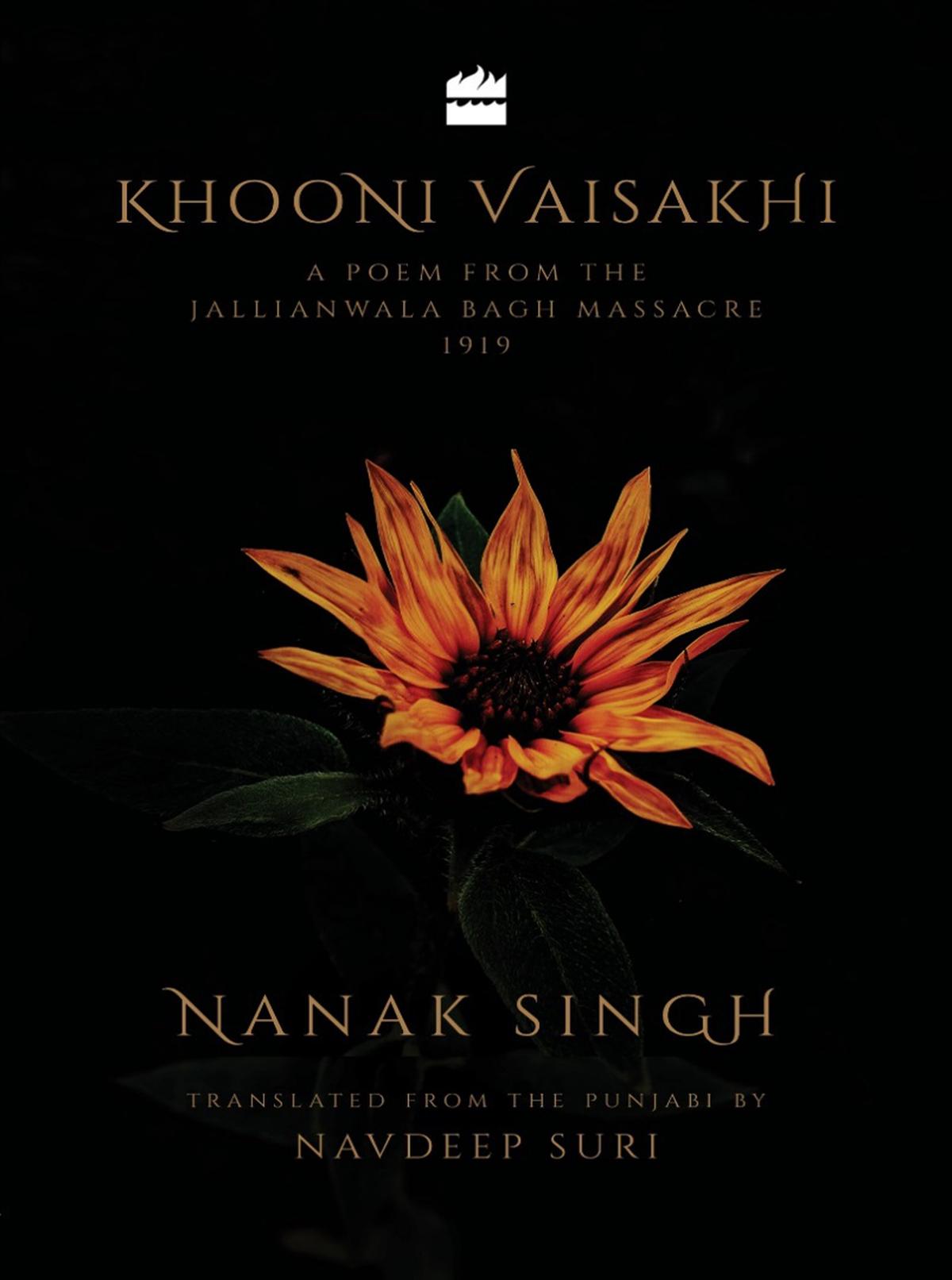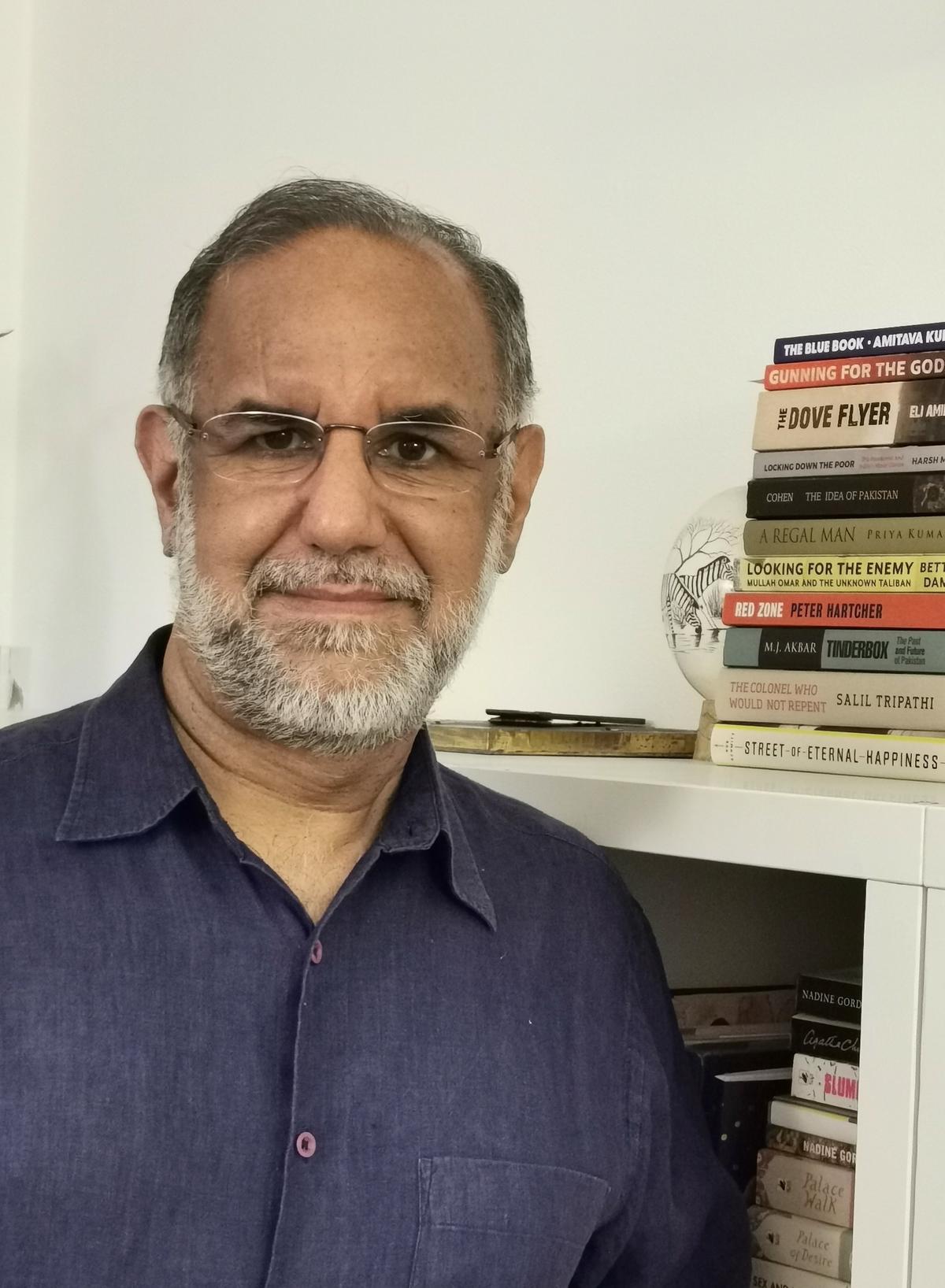
Navdeep Suri and Harpreet
| Photo Credit: Special Arrangement
In the dimly lit auditorium of the Bangalore International Centre, history came alive. On the stage, perched on a simple stool, was Navdeep Suri. Clutched in his hands was a book that held not just words, but 22 year-old Nanak Singh’s haunting eyewitness account of the Jallianwala Bagh Massacre preserved and translated by Navdeep from his grandfather’s original work, Khooni Vaisakhi.
The audience, a mix of history enthusiasts and those with a personal connection to the past, settled into their seats to be transported back to one one of the darkest days in India’s fight for independence — April 13, 1919.
Navdeep, began by offering some context for the excerpts he was about to read. “The beauty of the Rowlatt Act was that Gandhiji didn’t have to be a spin doctor to make people understand that it was unjust. It was so transparently malicious. The massacre was what turned him from a British loyalist to a staunch nationalist.”

Khooni Vaisakhi
| Photo Credit:
Special Arrangement
As he read from his translation, the massacre at Jallianwala Bagh unfolded in chilling detail. “Five-thirty sharp, the clock had struck. Thousands gathered in the Bagh, my friends,” he recited, his voice echoing the despair of those trapped in the garden. “Under tyrant’s orders, they opened fire straight into innocent hearts No exit, no escape, no way out was left, making Bagh a deathly trap.”
After each excerpt, the stage was handed over to Harpreet, a singer-songwriter who sang the original Punjabi verses of Nanak Singh’s poems. The haunting lyrics, “Why open your shops today, my friends, the town will be on strike tomorrow, you’ll catch a hail of bullets, my friends,” filled the room.
Harpreet reflected on his first performance on April 13, 2019, at the book release, “That performance was a spiritual experience. By the end, it almost felt as if I was not singing; rather someone else was singing through me.” This experience led him to create a full album of Nanak Singh’s poems in Khooni Vaisakhi.

Navdeep Suri
| Photo Credit:
Special Arrangement
Sharing the aftermath of the massacre, Navdeep read, “With faces drawn and muffled sobs, they sift through the corpses in silent fear. Like moth on a flame, hearts burned to ashes on seeing the fate of sons so dear. My child, oh, wake up just once more. What makes you sleep in a place so grey?”
The emotional intensity of the event was not lost on those in attendance such as 81-year-old Brinda Syali, who also witnessed the Partition. “They created an atmosphere where we felt we were at Jalliananwala Bagh. It gave me goosebumps.”
For Navdeep, the significance of Khooni Vaisakhi underscored the broader historical importance of the event and the continuing need to confront and acknowledge the atrocities of the past. “First of all, it is for us Indians to remember that freedom came at a price. One of the most egregious parts of our freedom struggle was the Jallianwala Bagh massacre.”
The massacre also tells the world that the colonial imperial rule is not what the British or others make it out to be, Navdeep said. “The world should remember that this was the reality of their reign.”
As the event drew to a close, the lines of Nanak Singh’s poem lingered in the minds of those present: “Look closely at our bodies, sealed. A thousand wounds you’ll see, oh friends. You stayed at home, reveling in your life, and desired us from your hearts, oh friends.”
Published – September 16, 2024 12:57 pm IST
#Jallianwala #Bagh #echoes #Khooni #Vaisakhi
